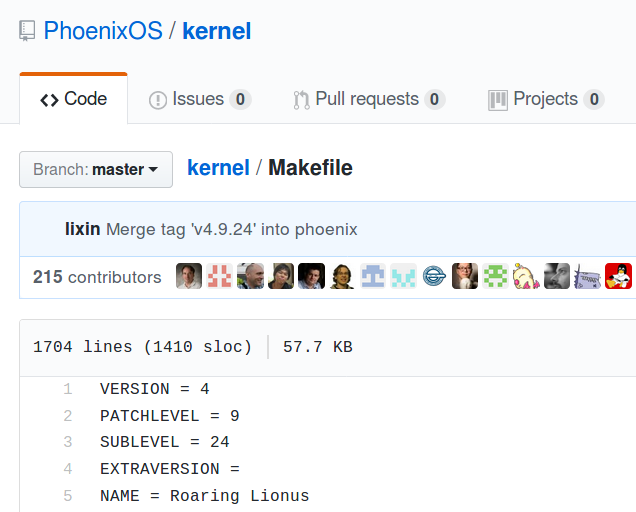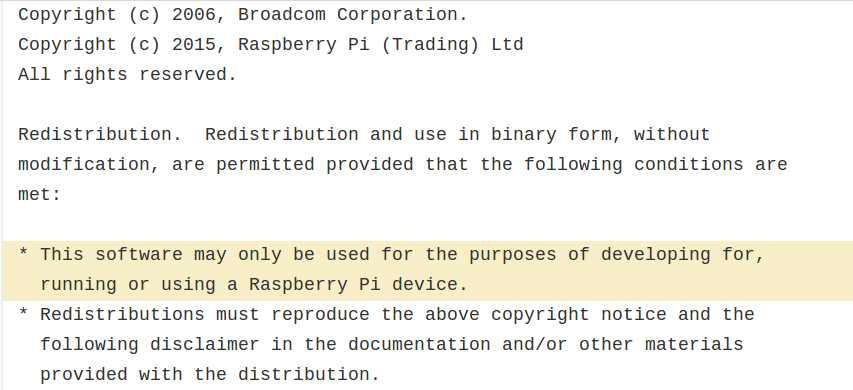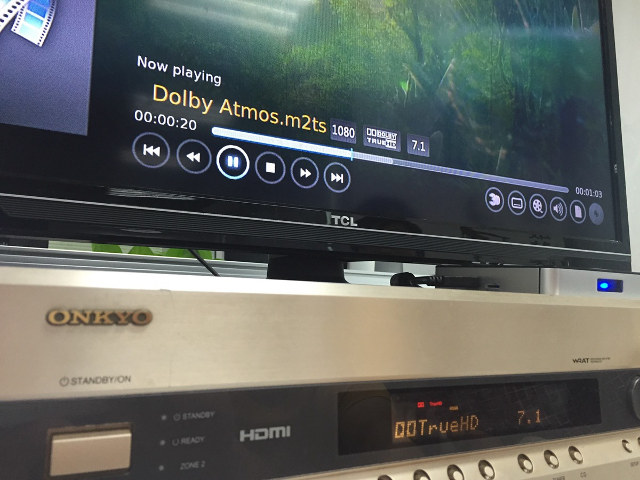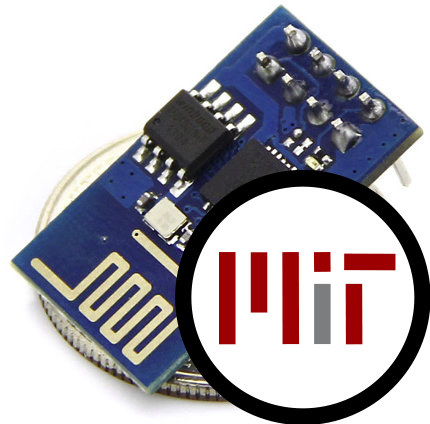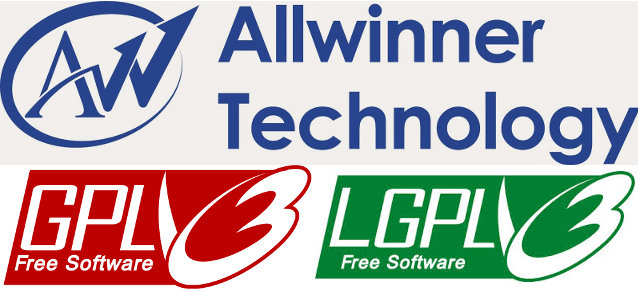Phoenix OS is one of the last options left for people wanting to run Android with desktop optimizations on their computer. The problem is that so far, it was fully closed source, and the company refused to comply with the Linux kernel’s GPLv2 license, despite part of the project being based on Android-x86 work. The community also wanted to get involved to improve hardware compatibility with graphics cards, wireless modules / dongles, and other peripherals. However, without source code, nothing could be done, and a petition was launched on Change.org asking Chaozhuo, the company behind the project, to release the Linux kernel code. After over 300 signatures was reached in the petition, the company did push Linux 4.9.24 to Github, and after verifying there was indeed some changes compared to Android x86 kernel, the community declared victory. They are however trying to make the company develop the kernel in the […]
Raspberry Pi Bootloader License Precludes it to Run on Competing Broadcom BCM283x Boards
Yesterday I wrote about ArduCAM Raspberry Pi compatible module, that packs most of the features of Raspberry Pi Zero or Pi Compute module into a 24x24mm board, and is based on Broadcom BCM2835 processor. One person also started a thread on Raspberry Pi forums about the tiny module, and one of the Raspberry Pi engineer and forum moderator replied that will would breach the bootloader license. The important part is the sentence highlighted above: This software may only be used for the purpose of developing for, running or using a Raspberry Pi device. ArduCAM module is only Raspberry Pi compatible, so it would indeed breach the license, and you can get into troubles if you planned to use that module in a commercial project, especially in countries where IP protection is taking seriously. This raises a few questions. First why did the Raspberry Pi foundation chose that restrictive license? The […]
Zidoo Releases Kodi Source Code Modifications for Rockchip RK3368 and Allwinner H3
Kodi is a popular open source media center, but many companies will not simply install the version released on Kodi.org, and instead modify the source code to bring their own improvements. However most companies never release the source as they ought to as per the GPL license used by Kodi. The good news is that Zidoo released their modifications for Rockchip RK3368 and Allwinner H3. Their modifications include support for 3D MVC,7.1 Channel HD Audio pass through, and HW decoding for Rockchip RK3368, and 5.1 audio pass-through, 4K @ 30 fps, and H.265 hardware video decoding for Allwinner H3. You can read the announcement on Kodi forums for RK3368 (Kodi 15.1) and H3 (Kodi 14.2). Kodi 15.1 source code for Rockchip RK3368 can be found on github (make sure to use zidoo-15.1 branch, and not master). In order to build Kodi yourself, you’ll however need the latest version of Rockchip […]
ESP8266 SDK 1.1.0 is Now Released Under an MIT License
ESP8266 is the now famous dirt-cheap Wi-Fi SoC used for IoT applications. It can be used by hobbyists and companies alike. But for the later, there was a licensing issue as Espressif ESP8266 SDK was initially released under the GPLv3 license. GPL code is great and lots of open source projects are released under the most common open source license. But since proprietary, closed source software has still its place in the market place, some other more permissive licenses such as LGPL are used for library, and Android for example has an Apache License 2.0. So previously, if you developed an application using ESP8266 SDK, you’re code would have to be GPL too, since the license is viral. It would also cause issues if you had released your application under an Apache or MIT license. But now, all is well, as Espressif released ESP8266 SDK 1.10 under an MIT license, […]
ARM: “Microcontrollers Are Better Because There’s No GPL”
[Update: ARM has pulled down the video and issued a statement] ARM has uploaded a video today entitled “Microcontrollers for Makers” showing the benefits of using micro-controller boards instead of processor based development boards such as Raspberry Pi or ODROID-C1, and their four first points are right on target, but the last one, as mentioned by Olimex, is completely wrong, and already made several people upset. Let’s go through the first four points: Micro-controllers are more energy efficient, so if your project is requires years on a cell-coin battery, MCUs are the way to go. MCU are cheaper too, now you can even get an MCU board for $1. They are smaller. The chip shown on the golf ball is Kinetis KL03 If you need real-time I/O, processors can’t beat micro-controller, that why people decide to connect an Arduino board to their Raspberry Pi, or products like UDOO Neo are […]
Allwinner CedarX Media Codec Library GPL/LGPL Compliance Update
Last month, I wrote about potential open source licenses and VP6 copyright infringement by Allwinner with their CedarX media codec library, and then since there’s been a few developments. First, Allwinner sent me an email saying they’ve now updated Cedarx library and referring my previous article. Here’s an extract: Here, I have some update of the Allwinner’s open-source status. We have done a lot of discussion with the developers from the linux-sunxi communication about the software license of CedarX. For each question or requirement asked by the developers, Allwinner has identify and try to give the best solution. Now, we believe Allwinner’s CedarX license is fully compliant and resolves concerns from the community. And you can take the announcement https://www.mail-archive.com/linux-sunxi@googlegroups.com/msg10597.html as a reference. Allwinner is always supporting the open-source, and try to do better and better. You can see some update on the github https://github.com/allwinner-zh, and some feedback from developers: […]
Allwinner’s New Media Codec Library (CedarX) May Infringe on Open Source Licenses and Copyrights
Allwinner has had to good idea to open allwinner-zh github account last September in order to release source code, binary libraries, and documentation for these ARM processors. Yesterday, the company released a new version of their closed source CedarX library used to decode and encode video streams. But Luc Verhaegen (libv), known for his reverse-engineering work on ARM Mali-400 (lima driver) and now Mali-Txxx GPU (Tamil driver), analyzed the binary and claimed the library is not compliant with LGPL licenses, and may also infringe on On2 copyrights. Luc wrote his concerns on sunxi-linux mailing list, and Allwinner promised to look into it. Two libraries are involved: ffmpeg which includes both LGPL and GPL licenses, but the contention seems to be about the LGPL part, since only optional features are GPL’ed in ffmpeg. It’s perfectly fine to include LGPL libraries into your binaries, as long as you don’t modify the open source […]
Embedded Linux Conference 2014 Schedule
The Tenth Embedded Linux Conference (ELC 2014) will take place on April 29 – May 1, 2014 at the San Jose Marriott in San Jose, California. The event will feature 90+ sessions on embedded Linux, Android and IoT with over 450 attendees expected to attend. It will also be co-located with Android Builders Summit and the AllSeen Alliance Hackfest. Even if you can’t attend it’s still interesting to see what will be discussed at the event to get a grasp of on-going developments, learn a few things about different optimization techniques, and so on. So I’ve gone through the sessions’ description, and I’ve designed my own virtual schedule with sessions that could be of interest. April 29 9:00 – 9:30 – Keynote: The Paradox of embedded and Open Source by Tim Bird, Sony Mobile Linux has taken the embedded world by storm. Billions (with a ‘B’) of devices have now shipped […]


